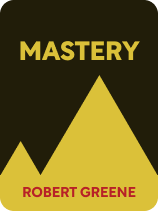

This article is an excerpt from the Shortform book guide to "Mastery" by Robert Greene. Shortform has the world's best summaries and analyses of books you should be reading.
Like this article? Sign up for a free trial here.
What’s mastery? What’s the life of a master like? Is being a dabbler, an obsessive, or a hacker keeping you from becoming a master?
If you want to master something, you should expect to travel a path, not arrive at a destination. George Leonard explains that mastery isn’t an end goal so much as a continual process of learning, discovery, and exploration of that skill, whether it’s taekwondo, oil painting, marathon running, or chess.
Read more to learn what to expect on the path of mastery.
The Path of Mastery
To begin, we’ll explain Leonard’s definition of “mastery.” Put simply, mastery is the continual, focused pursuit of developing a skill. In this sense, it’s the way of life lived by those who choose to walk the path of the master.
That concept—that mastery is a path, rather than a goal—is the core of Leonard’s perspective. To live his notion of mastery is to immerse yourself in the lifelong process of discovering, refining, and constantly learning more about the skill you choose to pursue.
Thus, Leonard says, mastery is an endless journey along which you commit to deep, dedicated learning of the myriad minutiae of your chosen skill. The path of mastery takes patience and focus to steadily grind away at the fundamentals, build a solid base of basic skills, and choose to keep going. All along the way, remember that the end goal isn’t the point—rather, the path itself is the point.
| Differing Definitions of Mastery In his book of the same title, Mastery, Robert Greene offers a different definition of mastery. Specifically, he contends that mastery is a state of fully developed creative excellence—the point at the end of the path where you’ve perfected a skill, field, or discipline. This assertion that mastery is a result, rather than a path, runs counter to Leonard’s perspective. At the same time, Greene does agree that there is a path of mastery—just that there are concrete stages along it and that mastery is a final stage that can be attained. He explains three stages: Apprenticeship, where you build your foundational skills and integrate into the social fabric of your field or discipline through your mentors and peers. Creative independence, where you begin to pursue your creative inclinations and develop your own projects, thinking, and so on. Mastery, where you’ve understood the entirety of your field—all available knowledge as well as all available technical skills and social interconnections. From Greene’s perspective, you aren’t a master until you’ve gone through many years of hard work and training. In contrast, Leonard would argue that living as a master simply means approaching life (and your skill) with the attitude of a master: with patient, diligent focus. |
Embrace the Plateaus, Reject Easy Shortcuts
If mastery is a path, then the main features of that path, according to Leonard, are its recurrent plateaus or flat zones. Put another way, he contends that, when you develop a new skill, your growth looks not like a continual upward trend but rather like a series of long, flat periods of hard work with few visible results. Every once in a while, these flat zones give way to spurts of growth—intermittent moments when everything you’ve been training for comes together, and you finally achieve competence in the technique or move you’ve been learning.
These plateaus are the main reason many people fall off the path of mastery. Leonard says that most, if not all of us, want to be good at something. However, we feel daunted by how long it takes to achieve real skillfulness. When we hear that it may be years before we can properly pitch a ball or perform on the piano, we lose all motivation. We don’t want to struggle through the long days of grinding away at mundane, minute techniques with little to show for it.
The Plateau Is the Path
Falling off of the plateau, Leonard says, is a tragedy, because we’re all born with the potential to be masters. Human beings are learning animals: We’re wired to develop skills that we aren’t born with, a capacity that no other animal has. We can learn to write grand symphonies, hike the highest mountains, create wonderful meals, or run faster than anyone ever has. We’re all born with the potential to master some skill, be it music, athletics, relationships, or business. Wasting that potential is a terrible loss.
To avoid that mistake, embrace the plateaus you’ll encounter along your path of mastery. Since most of the path consists of these flat periods, we need to sink deep into them—deep into the steady, diligent practice of fundamentals, repeating the technique dozens or hundreds of times. In other words, Leonard says, we must learn to love practice for its own sake; to recognize that learning happens all along the way, even if the motivating results only appear to happen every once in a while.
Put another way, Leonard argues that to become a master is to learn to do something simply because you love it rather than for any external rewards or motivations. When you have that desire to do something out of a simple, quiet joy for the activity itself, you know you’re on the path of mastery.
Instant Gratification Distracts From Mastery
If we’re all born with the capacity to be masters, why are the plateaus such a challenge? Leonard says that most of us fall off during plateaus because they reveal our real motivations: that we just want to look good, impress our friends, or have some fun. For Leonard, most of us aren’t serious enough to pursue real mastery.
According to Leonard, this is because modern culture conditions us to want instant gratification above all else. Advertising, television, and other sources of easy dopamine have taught us that the exciting, fast, and easy solutions are the best way to solve problems. This attitude has leached into all areas of our lives, and many people have lost the willpower to do anything that requires real, hard work.
Ultimately, Leonard says, this lifestyle leads nowhere good. When the pace of life is characterized by one high point after another, the end result is a dramatic fall. It’s impossible to keep the climaxes coming forever. Like a drug addiction, each successive hit feels worse than the previous, and you’ll eventually be fragile, impatient, irritable, and unable to focus—unable to live with presence, patience, and diligence, as a master does.
Three Learning Styles That Prevent Mastery
Having detailed Leonard’s definition of mastery and its main characteristics, we’ll next look at three other learning styles that he contrasts with the master, whose learning style is that of the patient, diligent, path-embracing person described in the previous sections.
The following three learning styles characterize people who aspire to mastery yet ultimately fall off the path. According to Leonard, people split into these categories into even thirds, give or take a little. He recommends that you try to spot which one you might be so that you recognize how you might be avoiding or neglecting your potential to become a master.
The Dabbler
The first learning style Leonard describes is the dabbler—someone who’s always in pursuit of novelty. He’s always excited to try some new skill, and he works at it for a time with great enthusiasm, often overcoming the first plateau to achieve a spurt of progress. However, as soon as things get hard, he becomes baffled and dismayed. His enthusiasm wanes, and he starts finding reasons that this skill just isn’t really for him. Ultimately, the dabbler cares more about novelty and about feeling good than about developing a skill in any committed way.
(Shortform note: Note that novelty-seeking is not a personality flaw, as Leonard somewhat implies, but rather a natural human trait. Called neophilia by scientists, it’s been shown that humans have an affinity to seek out new, stimulating things. Neuroscientists describe this tendency as both an evolutionary tool—being savvy to novelty in our environment would’ve helped us survive—and as part of our brains’ motivational machinery for learning new skills.)
The Obsessive
Next, Leonard describes the obsessive—someone who focuses on results at the expense of all else. He doesn’t care how he gets there; just that he does. He’ll take shortcuts, work obsessively hard, and push himself unreasonably far. He’ll try to perfect his technique in the first lesson, the first hour. He makes progress, but inevitably he burns out, falls off, and never returns to that pursuit.
(Shortform note: The obsessive is similar to a workaholic, a type of person who can’t stop working (or thinking about work) even after hours or while at home. This behavior is unhealthy to the extent that you’re unable to switch it off or “psychologically detach” from work. However, it’s possible to work long and hard hours in a healthy way if you’re able to then finish up and detach. Given this, consider that if you find yourself with the energy and focus of an obsessive, that’s not all bad—you might leverage it to your advantage, working harder and longer than others, so long as you can switch off later.)
The Hacker
The final learning style Leonard describes is the hacker—someone who isn’t concerned with serious learning. Rather, he’s content to know just enough to enjoy himself—just a few chords on the guitar, just a handful of decent dinner recipes. He’s content to be just OK at the skill, stay on the plateau forever, and never overcome any real obstacles to growth and development.
(Shortform note: While Leonard argues for depth, or profound mastery of a single, focused skill, there’s also value in building the breadth of skills that a hacker might pursue. You might feel interested in a wide range of things rather than just one skill—and in Range, David Epstein argues that this is an advantage in today’s working world. Specialization, he says, is becoming obsolete as we transition into a knowledge economy that’s based more on creative, lateral thinking skills than the singular expertise of, say, a mechanic or doctor. With this in mind, you might consider that casual interest in a wide variety of things isn’t so bad after all.)

———End of Preview———
Like what you just read? Read the rest of the world's best book summary and analysis of Robert Greene's "Mastery" at Shortform.
Here's what you'll find in our full Mastery summary:
- How to walk the path of the master by being disciplined in your skill or art
- Why mastery isn't an end goal, but rather a continual process of learning
- Why the master's path is the only guaranteed way to live a fulfilling life






